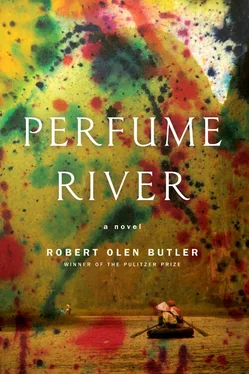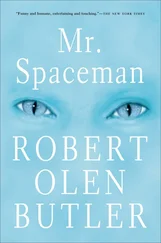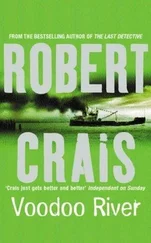The thought of adding their other hands to the ones shaking occurs to both men but only in the abstract, only to be recognized as sentimental and set aside.
When they let go of their hands, Jimmy says, “I’m going to test our pact right away. I came here because of a dead father. But it’s not just about him. Maybe not about him very much at all anymore.”
Jimmy hesitates. He hasn’t planned this. Never imagined relating it to his brother. But he’s glad for the chance. He says, “You were precocious when we were kids. And I think you had something dark in you. Can I ask? Did you go off to Vietnam to face death? Did you have to get into the very presence of death to figure it out? Is that what I didn’t recognize about what you did?”
This is not the question Robert expected. He wants the answer to be Yes. To square himself with Jimmy. To put his motives beyond the criticism of his father, who would never understand such a thing. But the answer isn’t yes. Isn’t even partially yes. He says, “Since we’ve agreed not to argue the past, is it possible for us also to be entirely honest?”
Jimmy waggles his head a little at this sudden complexity. “Good question. At least we need to try. Otherwise you might as well just go ahead and help me get the hell out of here. But perhaps we can have it both ways, eh?”
“Perhaps,” Robert says. “So then. No. I didn’t go off to face death. Not at all.”
And he thinks: Simply that much honesty may not result in an argument, but it will preserve, everlastingly, the estrangement between us. And he knows: I can say the thing that the man lying next to us nearly took to his grave. A thing Robert would just as soon take to his. Do I want a brother? If Robert says no more, he will lose Jimmy forever. If he speaks fully, Jimmy might have a way to understand him, even in light of his own drastic deed of the sixties. Do I want this man for my brother?
Perhaps.
Robert says, “You were right long ago. It was all about Pops. About winning his love. You were smart to give up trying. I can see that now. I didn’t go to Vietnam to confront death. I did everything I could to avoid it. Not to see it. Certainly not to inflict it. I voluntarily enlisted so I could choose an army job. A deep-in-a-hole faux research job. And in doing that, I destroyed the thing I wanted most from Pops. I got its opposite. He’d expected me to go off eagerly to the killing, as he had. So he despised me for the rest of his life. Silently. I never knew. Not till he told me himself the afternoon before he died.”
Robert finds himself relieved not to take that to his own grave. Even if Jimmy doesn’t get it.
Robert turns his face away, in the only direction possible. To his father. To the death mask of his father. Concerning his brother, Robert thinks, I don’t trust him. But he’s the only person alive who can possibly understand. The only other son of my only father.
“Bobby.”
Robert looks back to his brother. Jimmy stopped calling him that before they were teenagers.
For Jimmy, though what seems to be happening here is new to him, though the army part mitigates his worst assumptions about Robert, his mind could easily swirl on now in its accustomed way. With no mitigations possible once you become part of the war machine. With the established legacy of his father’s blows and Robert’s silence. But the other part of all this surges in him: their shared father, who betrayed them both. And Jimmy thinks: Do I want a brother?
And he says, “I didn’t know any of that. Never imagined.”
Then a pause between them.
Long enough for Robert to turn a corner in his head and find another abyss to leap across. But I did confront death: I inflicted it.
This he cannot tell his brother.
Jimmy says, “If I were you — if I were the big brother — I probably would’ve courted the old man the same way. At least you kept the blood off your hands. I hope I would’ve been smart enough to do it the way you did.”
Robert struggles now with one more irony: As fine as his brother’s reaction is, Robert’s remaining secret about Vietnam would’ve had a better chance for absolution from Pops. If Jimmy were to know, Robert would lose him again.
“Thanks,” Robert says.
But that is the only show of sentimentality between the two brothers, who both turn now to look at their father’s dead body.
Together they eye him silently for a few moments.
“Crappy suit,” Robert says.
“He needs leather for the grave,” Jimmy says.
And Bob is standing at the edge of the woods. Calvin is in him. Saying things he hasn’t said before. So Private Weber, you’re in the woods tonight and you see the enemy and you’re quick like you’ve always been, quick to lock and load and aim, ‘cause you’re my boy and you’re good at what I’m good at. Yeah, I said good like me. Good like I used to be. I know all you ever saw was how wrecked I was. They fucking beat us down. Not the enemy. The brass. The government. They did it to all of us. They humped our asses through the jungles of Hell, blew us apart, body and mind, and then they just up and quit. Turned the last page. Gave the whole thing away and turned us into chumps. Dead chumps. Maimed chumps. Batshit-crazy chumps. Sure you saw me already broken like that, even with a rifle in my hand, which is a fucking shame. That wasn’t me. Not like I was in the heat of it, not while I was waging war. You need to believe that of your old man. You’re like the me in Vietnam. But tonight you were quick and ready and then you backed off. Why? A fucking hug. You had your target in your sights and you let him get away because you turned it into this bullshit jungle village scene. A father giving his boy a hug. There’s a lot you don’t know about life. I can’t even begin to tell you. But you walk into the prettiest little village with bananas in the trees and clucking fucking hens in the doorways and you can get your ass blown apart there just like anywhere else. These are tough lessons to learn, boy, things you have to learn for yourself. I can’t say I’m sorry I learned them, even as fucked up as it was. That’s better than being a chump who stays stupid all his life, thinking things are gonna turn out fine. Go on through those doors over there. You’ll see. I’ll come with you. We’ll see together. I can’t give you a hug. Grow up. I seen too much in this world to do a thing like that. But I can slide on inside your head and your heart and your itchy good right hand and ain’t that even better?
And Bob is crossing the driveway.
He feels his Glock lying heavily against his heart.
And he’s through the porte cochere doors and it’s not what he was ready for. A long room. No, a corridor. Piss-colored light and easy chairs. Just an old woman down the way. Just one old woman. Looking up now. Looking at him. What’s to see here?
She’s looking Bob over. With that look.
She rises.
Bob waits for his father to tell him what to do.
She’s heading this way.
And Bob hears Calvin again: I can slide inside your head and your heart.
He takes a deep breath.
He fills himself up.
Like breathing in a ghost.
The old man.
Bob feels light as air.
And she’s before him. Cocking her head. Pursing her lips into a tight line.
But an odd thing. Her eyes are red. From crying. Her cheeks glisten. Hold your horses, boy. I’ve seen this in my wife. I didn’t mean to hurt her but I have. Hanging with people she doesn’t understand. Drinking too much. Getting a little rough. She’s not the enemy.
So Bob is calm.
“Yes?” the old woman says.
“Yes,” Bob says.
Читать дальше












